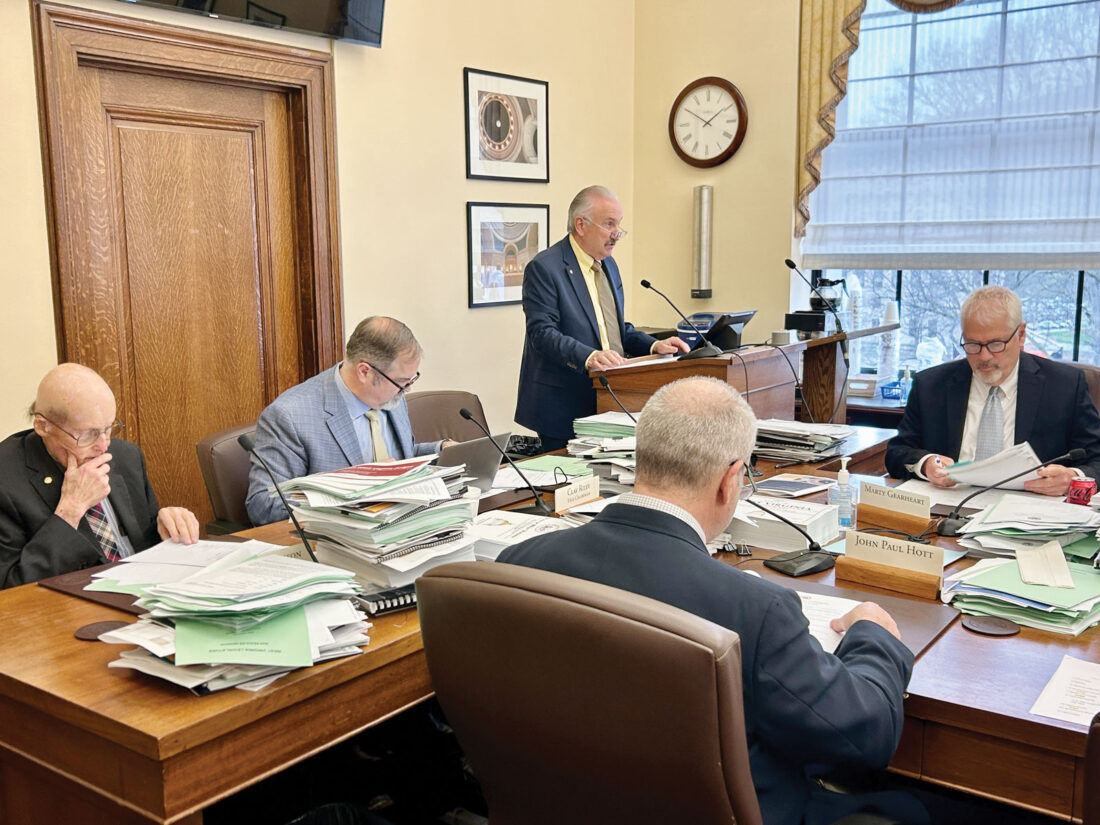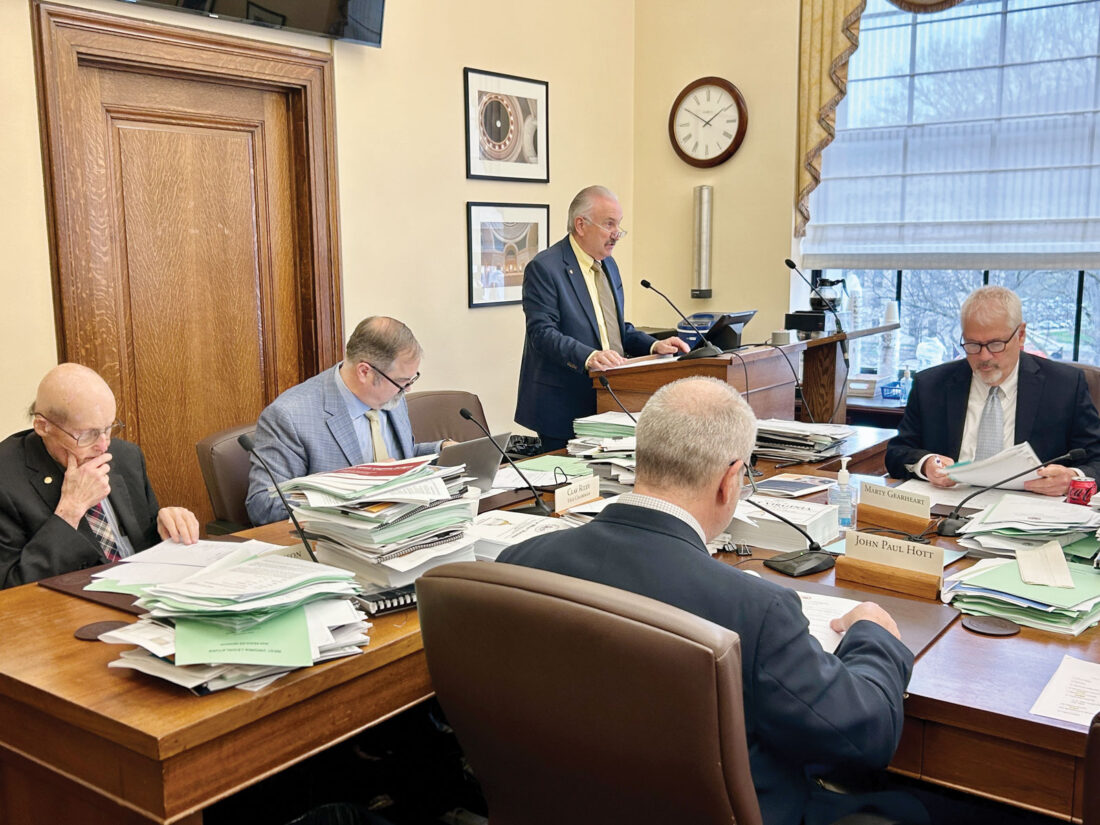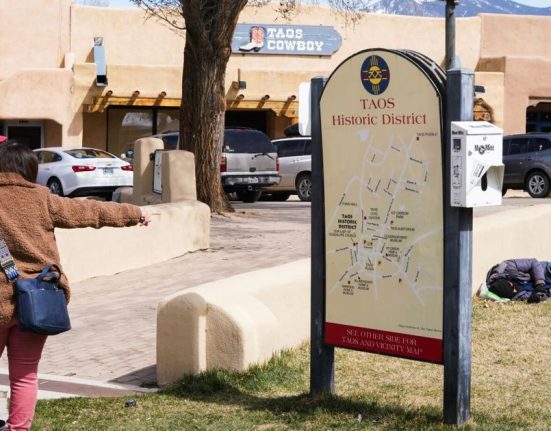
House Finance Committee Chairman Vernon Criss calls the vote Monday on House Bill 2026, the committee’s substitute for Gov. Patrick Morrisey’s budget bill. (Photo by Steven Allen Adams)
CHARLESTON — Ignoring Gov. Patrick Morrisey’s introduced bill for the general revenue budget, the House Finance Committee recommended its version of the budget bill that closely resembled the way the Legislative has budgeted the past seven years.
The House Finance Committee recommended a committee substitute for House Bill 2026, the budget bill, to the full House Monday afternoon in a voice vote.
The House Finance Committee version of HB 2026 sets a $5.127 billion general revenue budget for fiscal year 2026 beginning on July 1. Combined with other special revenue accounts and federal dollars, the total state budget comes to more than $19.2 billion.
The state budget consists of the general revenue fund, state road fund, special revenue fund, lottery and excess lottery funds, federal revenue and grants, and various surplus accounts. But the general revenue fund is the one section of the budget that lawmakers have a direct say in.
The House version of the general revenue budget is more than 3.6% less than the $5.323 billion presented to lawmakers by Morrisey during his State of the State address on the first day of the 2025 legislative session on Feb. 12. It’s also a more than 2.5% decrease from the $5.264 billion budget for the current fiscal year ending June 30.
Speaking after the House Finance Committee meeting, Chairman Vernon Criss said the House version is a departure from the way Morrisey and his new Department of Revenue team crafted the budget.
“We just did not take up the governor’s bill, period,” said Criss, R-Wood. “We took last year’s budget bill and we did the adjustments and basically used our budget bill from last year, took the stress points that … we did our research on and we put (the governor’s) stress points in there somewhat.”
Morrisey presented lawmakers his bill for a balanced general revenue budget with a revenue estimate of $5.323 billion for fiscal year 2026, representing a 1.1% increase from the general revenue estimate for the current fiscal year of $5.264 billion, or an increase of $58.6 million.
This came after Morrisey and his revenue team said in January shortly after taking office for his first term that a $397 million hole existed in the fiscal year 2026 budget. Former governor Jim Justice and previous legislatures kept West Virginia’s general revenue budgets relatively flat, but Morrisey’s revenue and budget team said the influx of federal funding due to COVID-19 and other monies combined with the overreliance on one-time monies led to the state’s budget not truly being flat.
Criss has been critical of Morrisey and his claims about a $400 million budget hole. The House and the state Senate alternate every year which chamber begins work on the budget bill, with this year being the House’s turn. Criss said he believes in the budget crafting process that has been in place for years.
“If you would look at the last seven years that we have done budgets, this is the way we have approached the budget,” Criss said. “We have started with the operating budget. We have tried very hard to stay as close to zero as possible on our growth…We’ve been able to make that work, and when we’ve had dollars available to take care of the wants, which is the back of the budget, versus the needs which are in the front of the budget.”
While the Morrisey budget discontinues use of the surplus section traditionally placed in the back of the general revenue budget, the committee substitute for HB 2026 includes a section for surplus appropriations if excess tax revenues are available at the end of the current fiscal year.
“You always need a cushion, and the governor made a brutal mistake in his budget by spending every damn dollar,” Criss said. “In the seven years that I’ve been up here as either vice chairman or chairman … we have never spent to zero.
“We’ve always created a cushion, and we’ve always done that because we know as the (fiscal) year begins on July 1, sometimes by the time we get here in January — the middle of the (fiscal) year — we know we’ve got a problem,” Criss continued. “You try to take care of that problem in the short gap before you get to next year’s budget.”
The House is expected to take up the message on HB 2026 Tuesday with passage in the House set for Friday.






